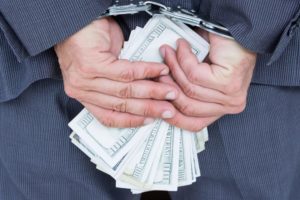 On April 4, 2022, a three-judge appellate panel decided the Hudson County case of State v. Jason O’Donnell. The principal issue under N.J.S.A. 2C:27-2 involved whether a candidate for public office has to be elected before he can be found guilty of “Bribery in Official Political Matters.”
On April 4, 2022, a three-judge appellate panel decided the Hudson County case of State v. Jason O’Donnell. The principal issue under N.J.S.A. 2C:27-2 involved whether a candidate for public office has to be elected before he can be found guilty of “Bribery in Official Political Matters.”
Presiding Judge Clarkson Fisher wrote for the Appellate Division in relevant part:
And we find nothing in the statute that would somehow exempt candidates for office from its reach. In fact, we already held that candidates for office are subject to the bribery statute, State v. Woodward (App. Div. 1997), and find further support for that conclusion in that N.J.S.A. 2C:27-2 is derived from the Model Penal Code, which was intended to criminalize a candidate’s receipt of a payment in exchange for a promise to perform some future official act. Model Penal Code & Commentaries, § 240.1 cmt. 5(b) at 27. To accept defendant’s argument – without some clear legislative expression to support it – would be to declare open season on the bribing of candidates for public office. Defendant’s interpretation that candidates are not made criminally liable for accepting bribes in the performance of some future official act would mean, if correct, that a candidate could be bribed before, during, and after being elected, right up until taking the oath of office. If the Legislature had intended to except such corrupt individuals from the scope of N.J.S.A. 2C:27-2 it could have, but did not, say so.
The State could also argue that an attempt or conspiracy to violate the statute would suffice as an alternate theory for conviction that would carry the same range of punishment. Therefore, any error alleged in the proceedings below would be harmless and insufficient to justify a reversal of the defendant’s conviction. The defense could counter this point by noting that a more culpable mind state is required for an attempt conviction. The same is also usually true of a related conspiracy conviction.
